<< Previous | Displaying results 421-430 of 6809 for "" | Next >>
Blimcia's parents were religious Jews. Her father, Shaya David, and her mother, Malcia Saleschtz, had settled in Kolbuszowa, where Blimcia's mother had been raised. There, Malcia's father bought the newlyweds a home and started his new son-in-law in the wholesale flour business. 1933-39: Blimcia was born in 1938, and was raised among many aunts, uncles and cousins. Around Blimcia's first birthday, Germany invaded Poland and soon reached Kolbuszowa. Polish soldiers on horses tried to fight against the…
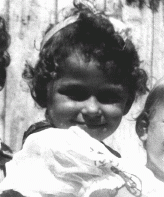
Rozia was born to a Jewish family in the town of Kolbuszowa. Her family lived outside of town, near her uncles. The Susskinds owned a flour mill and a lumber mill. Their home was one of the few in the area with electricity, which was generated at their mills. Rozia had an older sister, Hanka, and an older brother, Yanek. 1933-39: In the early 1930s, the Susskinds' mills burned down. Hanka moved to Cracow to study in the university and married, and Yanek was working in Kolbuszowa's Jewish bank. The…
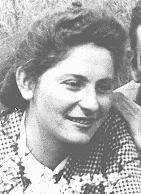
Kaethe was the fifth of nine children born to Jewish parents. After graduating from secondary school, Kaethe worked with her father in his bakery. In 1918 she married Samson Reichstein, and the couple settled in Hanover, where Samson was based as a salesman. Their son Herbert was born in 1920. As his wife, Kaethe was officially required to take on her husband's citizenship. 1933-39: In 1938 Kaethe and her husband succeeded in obtaining an exit visa for the United States for their 18-year-old son Herbert…
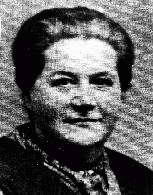
The son of Moses and Sarah Litwak, Josef was born in Dolina, a town in southeastern Poland. Josef came from a religious Jewish family. When he was in his early twenties, he married Mina Schaerf from the nearby town of Vinnitsa just across the Polish border. The couple settled in the industrial city of Lvov, where Josef worked in the family-owned bank. Josef and Mina raised five children. 1933-39: The Litwaks' two youngest children, Fryda and Adela, had finished secondary school and were planning to attend…
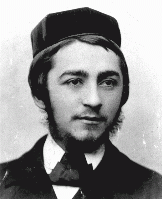
Jacob was living in Essen, Germany, when he met and married Erna Schumer, who, like him, came from a religious Jewish background. The couple had two children, Max, born in 1923 and Dora, born in 1925. Jacob worked as a salesman, and in the evenings he tutored students in Hebrew. 1933-39: In 1933 when Hitler came to power, Jacob went to Amsterdam to explore the possibility of the family moving there. However, Erna did not want to leave her three sisters who were living in Essen, and she also believed that…
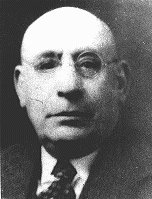
Frederik was raised in a religious Jewish home. His father was a scribe of Jewish holy texts. Frederik studied accounting and became a certified public accountant. After his father died, he helped support his three sisters, his blind brother and his mother. When he was in his mid-20's, Frederik married and started his own family. 1933-39: Creating an atmosphere of Jewish observance in the home was important to Frederik and his wife. They loved to celebrate the Sabbath and the Jewish holidays with their…
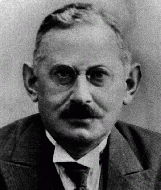
Grietje was born to a large religious Jewish family in Amsterdam. When she was in her mid-20's, she married Frederik Polak, an accountant. The Polaks had a son, Jacob, and three daughters, Julia, Betty and Liesje. They lived in simple quarters on the second floor of a house. 1933-39: Creating an atmosphere of Jewish observance in the home was important to Grietje and her husband. They loved to celebrate the Sabbath and the Jewish holidays with their four children. Grietje taught shorthand and needlepoint…
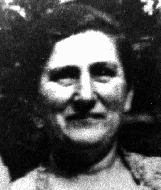
Erna was the second of four daughters. Her religious Jewish parents moved the family to Essen, Germany, in 1905 when Erna was 21. Erna married when she was in her twenties, but the couple had no children and her husband passed away. After living as a widow for some years, Erna remarried to Jacob Unger, a salesman, and together they had two children, Max and Dora. 1933-39: When Hitler became chancellor of Germany in 1933, Jacob went to Amsterdam to explore the possibility of the family settling there.…
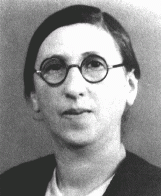
One of two children born to religious Jewish parents, Ema was raised in the small Moravian town of Lomnice, where her mother ran a general store. In 1901 Ema married Eduard Skutecky, a regular customer at her mother's store. The couple settled in the city of Brno, where they raised three children. Eduard ran a shipping company. 1933-39: By 1933 Ema's three children were grown and had moved out. Four years later her husband passed away, and Ema moved in with her eldest daughter, Elsa. Elsa and her husband…
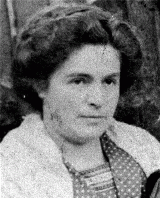
Szlamach was one of six children born to Yiddish-speaking, religious Jewish parents. Szlamach's father was a peddler, and the Radoszynski family lived in a modest apartment in Warsaw's Praga section on the east bank of the Vistula River. After completing his schooling at the age of 16, Szlamach apprenticed to become a furrier. 1933-39: During the 1930s Szlamach owned a fur business. Despite the Depression, he was hoping the economy would turn around so that he could make enough money to move into his own…
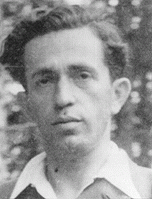
We would like to thank Crown Family Philanthropies, Abe and Ida Cooper Foundation, the Claims Conference, EVZ, and BMF for supporting the ongoing work to create content and resources for the Holocaust Encyclopedia. View the list of donor acknowledgement.